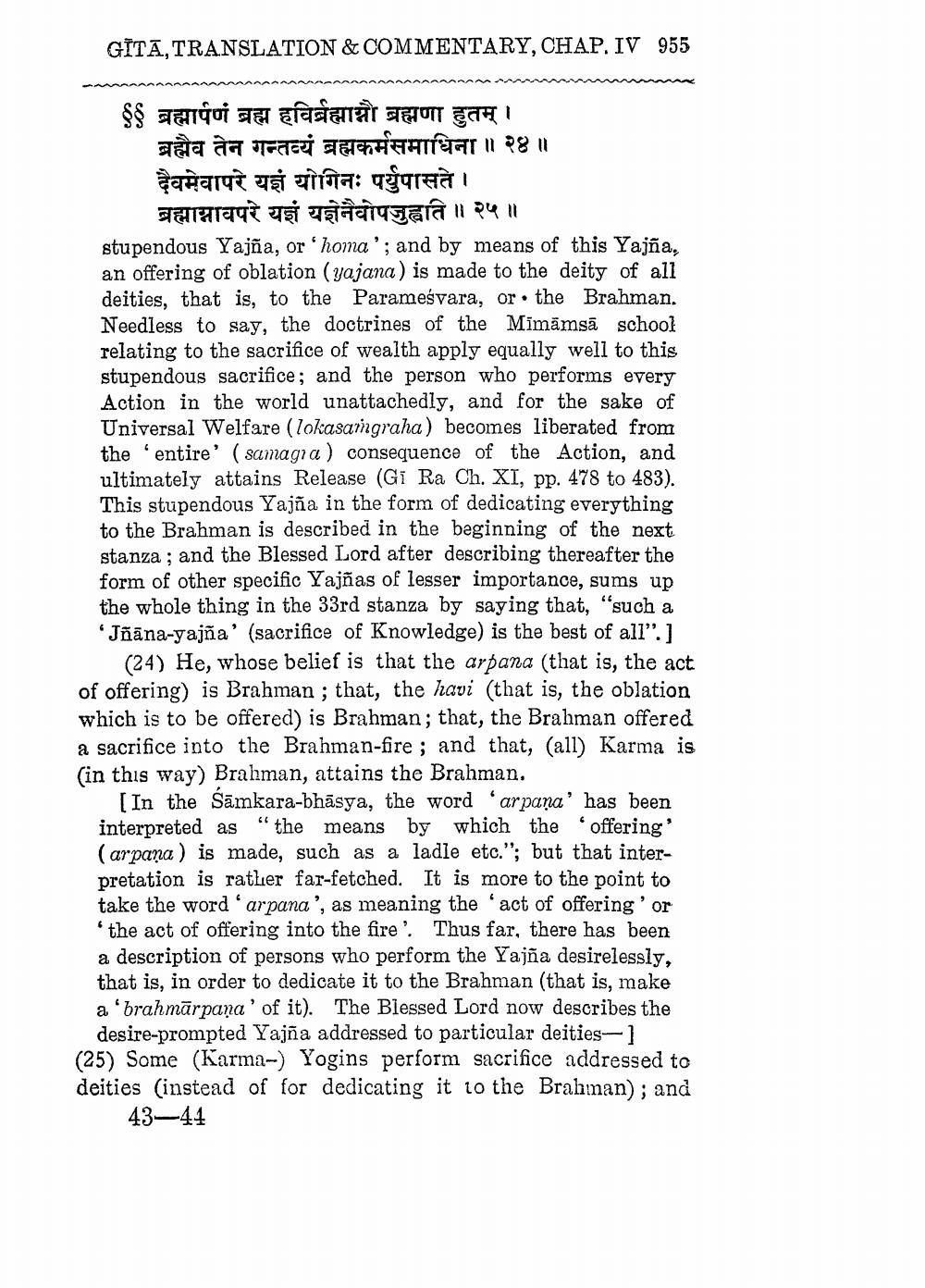________________
GITĀ, TRANSLATION & COMMENTARY, CHAP. IV 955
$ब्रह्मार्पणं ब्रह्म हविर्ब्रह्माग्नौ ब्रह्मणा हुतम् ।
ब्रह्मैव तेन गन्तव्यं ब्रह्मकर्मसमाधिना ॥ २४ ॥ दैवमेवापरे यज्ञं योगिनः पर्युपासते।
ब्रह्माग्नावपरे यज्ञं यज्ञेनैवोपजुह्वति ॥२५॥ stupendous Yajña, or 'homa'; and by means of this Yajña, an offering of oblation (yajana) is made to the deity of all deities, that is, to the Parameśvara, or the Brahman. Needless to say, the doctrines of the Mimāmsā school relating to the sacrifice of wealth apply equally well to this stupendous sacrifice; and the person who performs every Action in the world unattachedly, and for the sake of Universal Welfare (lokasangraha) becomes liberated from the entire' (samagra ) consequence of the Action, and ultimately attains Release (Gi Ra Ch. XI, pp. 478 to 483). This stupendous Yajña in the form of dedicating everything to the Brahman is described in the beginning of the next stanza ; and the Blessed Lord after describing thereafter the form of other specific Yajñas of lesser importance, sums up the whole thing in the 33rd stanza by saying that, "such a Jñāna-yajña' (sacrifice of Knowledge) is the best of all”.]
(24) He, whose belief is that the arpana (that is, the act of offering) is Brahman ; that, the havi (that is, the oblation which is to be offered) is Brahman; that, the Brahman offered a sacrifice into the Brahman-fire ; and that, (all) Karma is (in this way) Brahman, attains the Brahman.
(In the Sāmkara-bhāsya, the word 'arpana' has been interpreted as “the means by which the offering' (arpana) is made, such as a ladle etc."; but that interpretation is rather far-fetched. It is more to the point to take the word 'arpana', as meaning the act of offering'or
the act of offering into the fire'. Thus far, there has been a description of persons who perform the Yajña desirelessly, that is, in order to dedicate it to the Brahman (that is, make a 'brahmārpana' of it). The Blessed Lord now describes the
desire-prompted Yajña addressed to particular deities-1 (25) Some (Karma-) Yogins perform sacrifice addressed to deities (instead of for dedicating it to the Brahman); and
43-44




